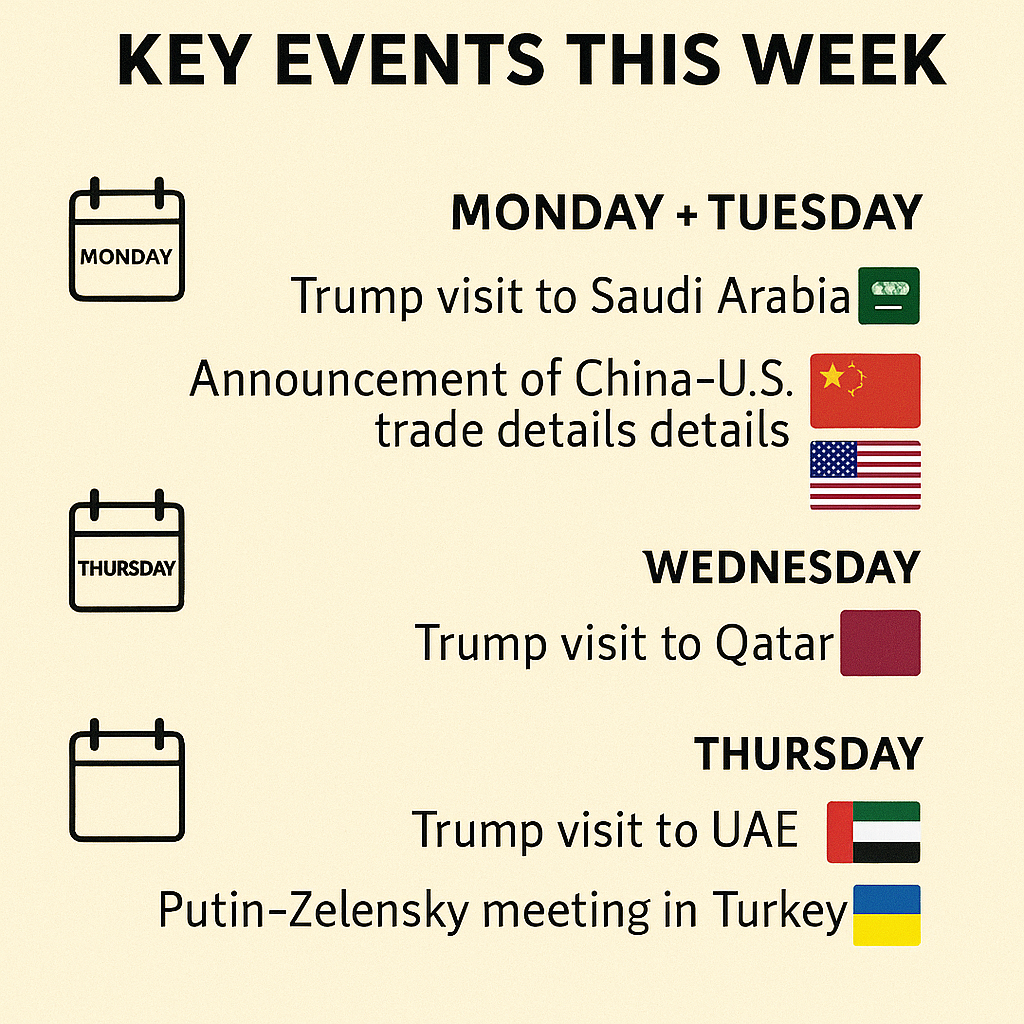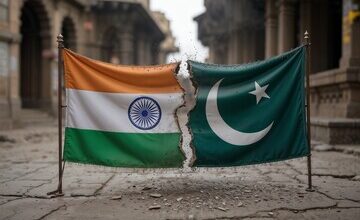The most important events you should follow this week

🇺🇸 President Donald Trump’s Visit to the Gulf
Monday and Tuesday (May 12-13): Saudi Arabia
President Trump began his second foreign trip with a visit to Saudi Arabia, where he seeks to sign massive investment agreements in artificial intelligence, semiconductors, and rare earths.
Saudi Arabia has pledged to invest up to $600 billion in the United States over the next four years.
Trump is expected to participate in a Gulf summit in Riyadh on May 14, attended by prominent figures such as Elon Musk and Mark Zuckerberg.
Wednesday (May 14): Qatar
Trump will visit Al Udeid Air Base, potentially announcing new security and trade partnerships.
Reports have emerged that Qatar has offered to provide President Trump with a luxury Boeing 747, sparking a debate over transparency and ethics.
Thursday (May 15): UAE
Trump is expected to conclude his tour in Abu Dhabi, where investment agreements worth up to $1.4 trillion are expected to be signed over 10 years.
🇨🇳🇺🇸 US-China Trade Agreement
Monday (May 12): Joint Announcement
The United States and China announced an agreement to reduce mutual tariffs for 90 days, a move aimed at de-escalating the ongoing trade war.
The United States will reduce its tariffs on Chinese imports from 145% to 30%, while China will reduce its tariffs on US imports from 125% to 10%.
Global markets reacted positively to this announcement, with stock indices rising significantly.
🇷🇺🇺🇦 Potential Meeting Between Putin and Zelenskyy in Turkey
Thursday (May 15): Meeting in Istanbul
Ukrainian President Volodymyr Zelenskyy announced his willingness to meet with his Russian counterpart, Vladimir Putin, in Turkey, provided a comprehensive ceasefire is implemented.
US President Trump urged Ukraine to enter into direct talks with Russia, saying it is time to end the war.
The potential meeting is the first between the two leaders since the war broke out more than three years ago and could open the door to a diplomatic settlement.
Follow these events closely, as they could bring significant developments that impact international politics and the global economy.





